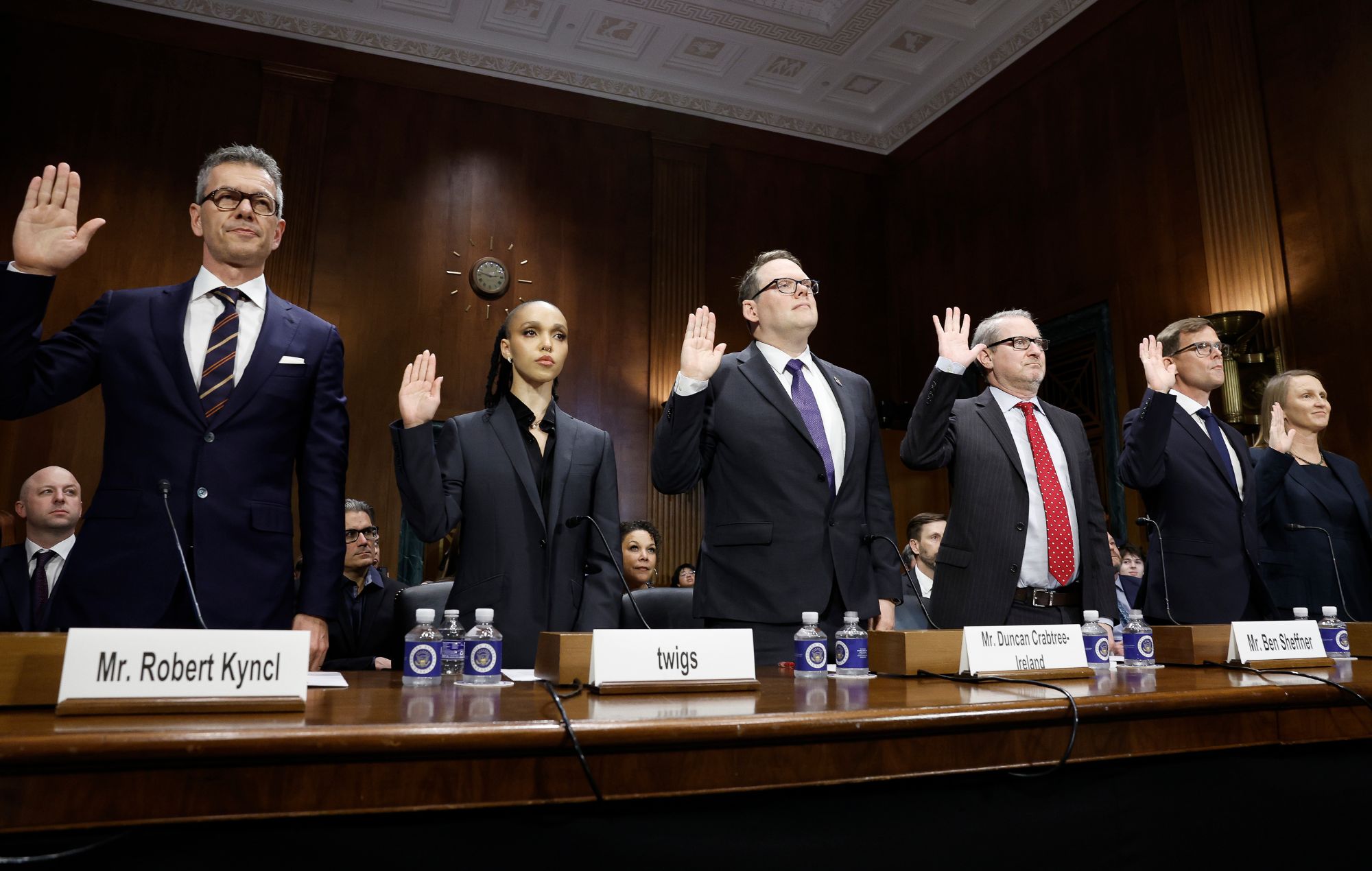MPs have suggested that musicians and celebrities should be protected against AI deepfakes by law.
READ MORE: Beyond human imagination: How AI is pushing the boundaries of entertainment
The push from the government comes after artificial intelligence has been used increasingly more to impersonate the image and voices of those in the public eye without their consent or knowledge.
It also comes in light of various British artists – including Jess Glynne, Mumford and Sons, Sam Smith, Robert Smith and Zayn Malik – signing an open letter last month, calling for the government to enforce wider protection against the technology.
Now, the All-Party Parliamentary Group on Music has called on the UK government to regulate the use of AI in music through law, and enforce “a specific personality right to protect creators and artists from misappropriation and false endorsement”.
The push came via a report shared earlier today (May 1), and highlighted how a law should be issued to protect celebrities from the risk of AI becoming “a destroyer of creators’ livelihoods”.
As highlighted by BBC News, the cross-party group’s chair, Labour MP Kevin Brennan said politicians must “confront the danger that unfettered developments in AI could pose to the UK’s musicians and music businesses” and warned that “AI can be a great servant but would be a terrible master.”
The MPs also made reference to a new law passed in the US – the Elvis Act – which prohibits the use of AI to mimic an artist’s voice without their permission, and insisted that “the UK [should] not fall behind our international competitors”.
The ChatGPT logos are being displayed on a smartphone screen and on a computer screen in Athens, Greece, on April 24, 2024. (Photo by Nikolas Kokovlis/NurPhoto via Getty Images)
At time of writing, the UK does have regulations in place to prevent people from misrepresenting others when offering goods or services, but the All-Party Parliamentary Group on Music argued how much protection it could offer in relation to AI technology and deepfakes.
In response to the issues put forward, a government spokesperson said (via BBC): “We are committed to helping artists and the creative industries work with the AI sector to harness the opportunities this technology provides, and ensure our music can continue to be enjoyed around the world.
“Trust and transparency are vital to this shared approach. We are working closely with stakeholders and will provide a further update in due course.”
It was reported last month that the creation of sexually explicit “deepfake” images is to be made a criminal offence in England and Wales. It comes after recent years have seen people impose the faces of celebrities into pornographic films or images, as happened to Taylor Swift earlier this year.
Following the trend gaining momentum, a push for greater regulations followed, and the government confirmed a new law will be created and anyone making explicit images of an adult without their consent will face a criminal record and an unlimited fine. The Ministry of Justice said this will apply regardless of whether the creator of the image intended to share it.
Taylor Swift performs on stage during a concert as part of her Eras World Tour in Sydney on February 23, 2024. (Photo by DAVID GRAY / AFP/Getty)
In response to the MPs’ request for legislative change, The Council Of Music Makers shared a statement reading:
“We are grateful to the APPG for this report, which provides a helpful framework for government. AI offers opportunities for the music industry, but only if music-makers’ rights are protected. The government should ensure that both tech companies and rights-holders get consent from music-makers before using their work in AI and then fairly compensate them”.
The efforts to regulate AI in the UK comes just hours after singer-songwriter FKA Twigs put forward a testimony to the Senate Judiciary Subcommittee on Intellectual Property in Washington D.C.
It came in regard to the ‘No Fakes’ Act – which has been developed with the aim of protecting public figures from the unauthorised use of names, images and likenesses for AI – and saw her reveal that she has developed her own deepfake version of herself, specifically to interact with fans online.
“In the past year, I have developed my own deepfake version of myself that is not only trained in my personality but also can use my exact tone of voice to speak many languages,” she wrote in the testimony “These and similar emerging technologies are highly valuable tools both artistically and commercially when under the control of the artist.”
“That the very essence of our being at its most human level can be violated by the unscrupulous use of AI to create a digital facsimile that purports to be us, and our work, is inherently wrong,” she added.
FKA twigs attends Congressional Testimony – NO FAKES Act at Dirksen Senate Office Building on April 30, 2024 in Washington, DC. (Photo by Shannon Finney/Getty Images for RIAA)
“It is therefore vital that as an industry and as legislators we work together to ensure we do all we can to protect our creative and intellectual rights as well as the very basis of who we are.”
Among the various artists calling for stricter regulations on the use of artificial intelligence is CHVRCHES singer Lauren Mayberry, who spoke about the impact that the use of deepfakes can have on an artist.
“I remember learning that deep fake porn of me existed and how horrible and violating that felt,” she told Emily Atack as part of a documentary last February, sharing images of just some of the abusive DMs she receives.
“Now I just wander about my daily life and get on with normal things whilst that floats about in the background. It’s crazy how desensitised you become to things you really shouldn’t be, maybe out of a sort of jaded self preservation.”
The post MPs suggest musicians and celebrities should be protected against AI deepfakes appeared first on NME.




